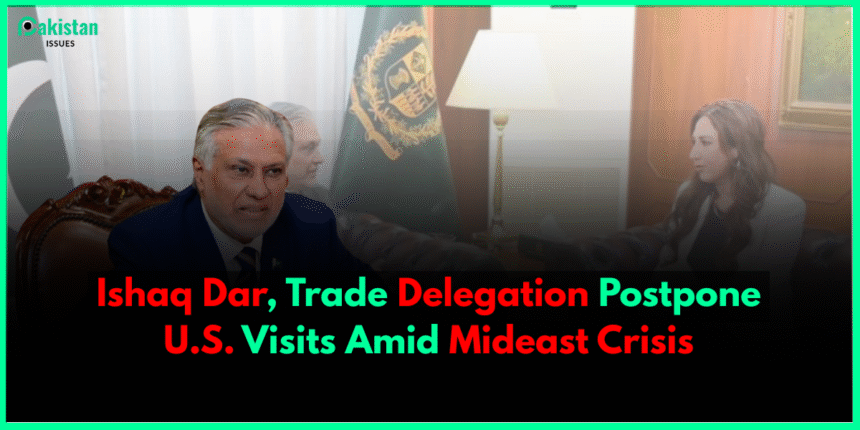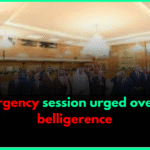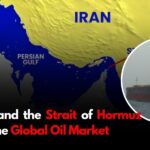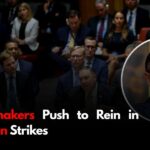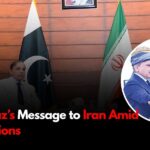Islamabad — A planned trip by Deputy Prime Minister Ishaq Dar to New York and Washington, along with a Pakistan trade delegation, has been postponed due to escalating tensions in the Middle East.
Dar was expected to join a UN-backed summit in New York focused on Palestinian statehood. That event has been put on hold at the request of France and Saudi Arabia after the recent surge in regional violence between Israel and Iran. Separately, the trade mission to Washington — which was set to begin tariff talks — has also been shelved for now, Pakistani officials said .
Ripple Effects Beyond the Region
Diplomats in Islamabad note that the postponements weren’t a reaction to internal delays, but a global panic sparked by the Middle East flare-up. Pakistan, they say, chose caution over proceeding with high-stakes diplomacy while world attention focuses on potential military escalation.
Though both trips remain on Pakistan’s agenda, finding replacement dates depends entirely on regional calm and coordination between Islamabad and its American hosts .
Domestic Debate Heats Up
Back home, the postponements have sparked political debate. Critics argue Pakistan may lose momentum on economic and diplomatic goals, while supporters maintain that rearranging these engagements shows responsible leadership during unstable times.
What Happens Next?
Officials in both Islamabad and Washington confirm that the visits won’t be cancelled outright. Instead, they’re taking a “wait-and-see” approach. Once the Middle East crisis cools, the tariff talks and UN conference will resume.
Why This Matters
- Economic Stakes: The postponed trade talks were a rare opportunity to push Pakistan’s exports into the U.S. market amid global inflation and sluggish growth.
- Diplomatic Strategy: By pausing, Pakistan signals that regional stability comes first—setting a tone of responsibility and awareness.
- Wider Trend: Pakistan isn’t the first to delay such plans. Several countries have reassessed travel and diplomacy in light of the regional volatility.



